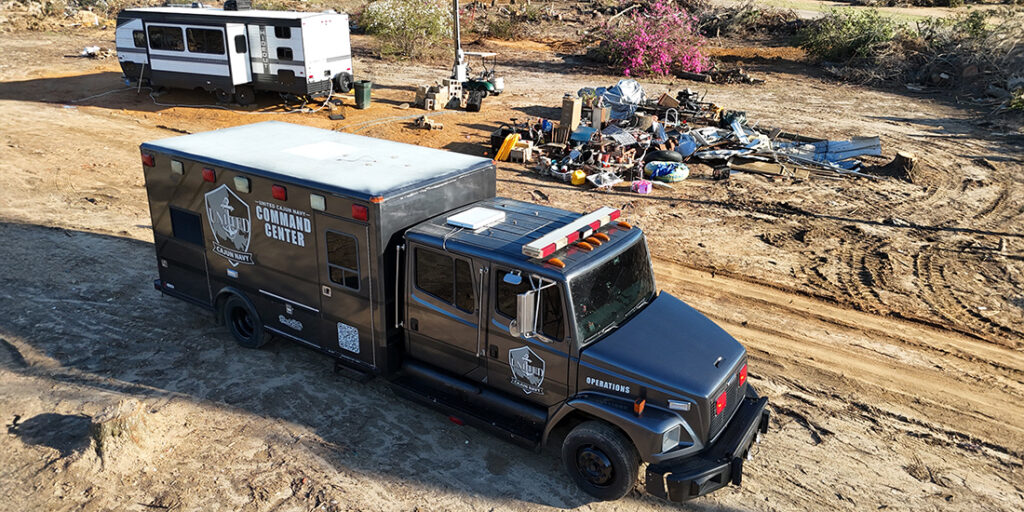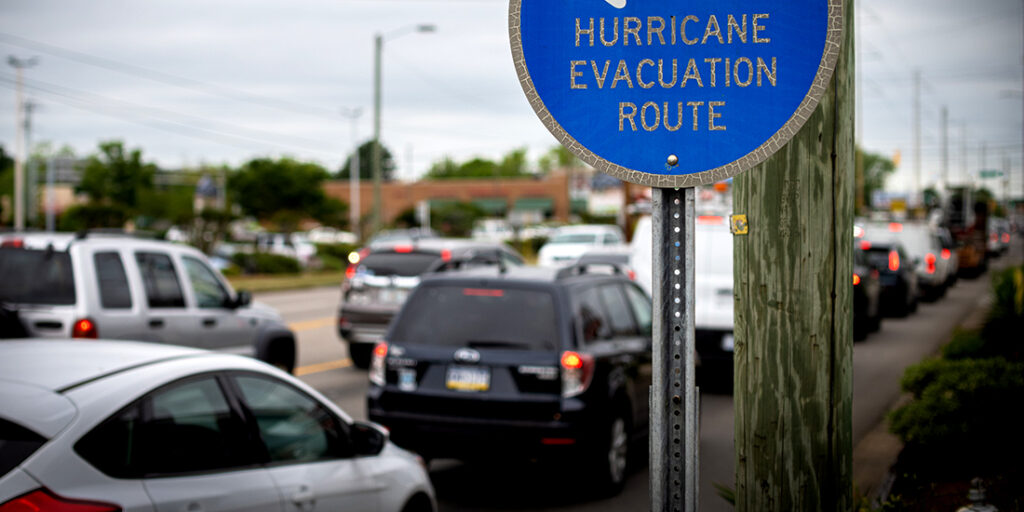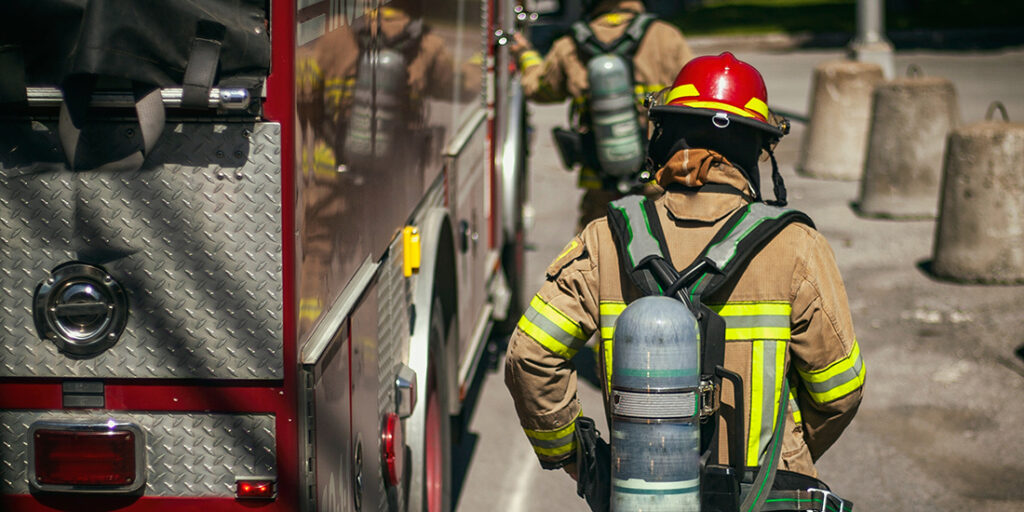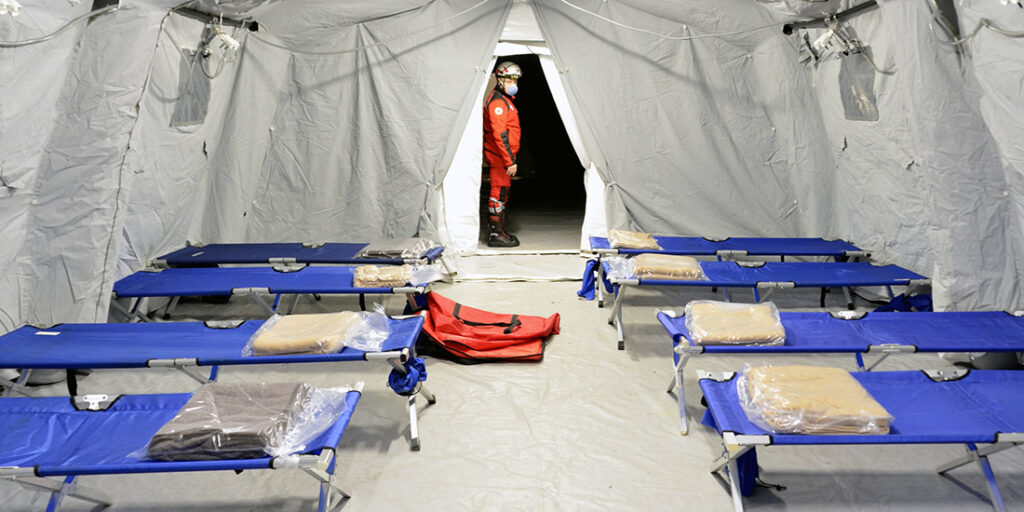EMERGENCY MANAGEMENT

The United Cajun Navy: Advancing Disaster Response With Volunteerism and Industry Partnerships
- Mitchel Reed
Formed after Hurricane Katrina in 2005, the United Cajun Navy unites boat owners and other volunteers to aid during floods, hurricanes, and other disasters, bridging gaps in official response and recovery. A volunteer “technical industry liaison” partners with businesses to add technical capabilities and strengthen its efforts. This model shows how collaboration with such liaisons enhances volunteer effectiveness.
MOST Recent

Lessons From Indigenous Emergency Response in Canada
David Formentini
September 3, 2025
Emergency management in Indigenous communities carries a unique spirit, one not always captured in the structured blueprints of conventional emergency operation centers. Emergency managers should examine culturally appropriate emergency support and communication strategies to improve crisis response.

Overcoming Hurricane Evacuation Delays to Save Lives
Judy Kruger
September 3, 2025
Flooding is the main cause of hurricane deaths in the U.S., and evacuation planning is critical to life safety. For maximum community buy-in, emergency managers should educate the public on optimum evacuation procedures and account for supply chain disruptions.

Fortress at Risk: Critical Infrastructure and Violent Extremism
Thomas Brzozowski
August 27, 2025
Extremism gives rise to individuals, groups, and networks who see critical infrastructure as a prime target for violence. In reality, the concept of a shared-responsibility model can falter under the strain of a cascading failure. Preparation depends less on policy and more on practiced coordination before an incident occurs.

A Sixth Framework? Civil Defense and the Future of Emergency Management
George M. Schwartz
August 27, 2025
Comprehensive emergency management in the U.S. evolved from World War II and Cold War-era civil defense, but today, civil defense plays little to no role in emergency management policy. With most Americans expecting a major conflict within the next decade, it is time for a sixth framework.
EMERGENCY MANAGEMENT ARCHIVES
A Sixth Framework? Civil Defense and the Future of Emergency Management
George M. Schwartz
August 27, 2025
Comprehensive emergency management in the U.S. evolved from World War II and Cold War-era civil defense, but today, civil defense plays little to no role
The Evolving Landscape of Domestic Extremism
Richard Schoeberl
August 20, 2025
Extremism in its many forms remains a growing threat in the U.S. There is heightened concern about ongoing violent extremist reactions to both domestic sociopolitical
FIFA, Terrorism, and Preparedness for the 2026 World Cup in the U.S.
Adam Johnson
August 20, 2025
The quadrennial championship of the most popular game in the world—soccer—is coming to the United States in 2026, and fans from around the world will
Threat Detection at Events: A Collaborative, Layered Approach
Tami Richter
August 13, 2025
Large-scale events are high-visibility targets for threats and terrorism, and disruptions can range from minor to catastrophic. Preventing such incidents requires a multilayered approach across
Preparing Small Communities for Terrorist Attacks
Rodney Andreasen
August 13, 2025
Terrorist attacks have broad psychological, social, and economic impacts that often extend beyond the initial target. While large cities are typical targets due to their
John Wilson on Knowing What to Do When Stuff Hits the Ground
Domestic Preparedness
August 13, 2025
John Wilson is well-versed in emergency management and hurricane preparedness. In this discussion with Domestic Preparedness, he shares his lessons learned about the evolution of
Follow Us
Get Instant Access
Subscribe today to Domestic Preparedness and get real-world insights for safer communities.
EMERGENCY MANAGEMENT
Most Recent

Reimagining Readiness: The Future of Emergency Management in Homeland Defense
Cody Santiago
August 6, 2025
Underdeveloped civilian emergency management integration with Department of Defense resources results in gaps in preparedness, intelligence-sharing, and response coordination. A

The Optimism Bias Trap: Rethinking Threat Preparedness
Joshua Sullivan
August 6, 2025
Mass violence increasingly targets ordinary people performing routine duties in uniform, behind the wheel of marked vehicles, or responding to

Global Health Crises: Leadership Matters
Richard Serino and Michelle Pratt
July 30, 2025
Without strong leadership, health systems are susceptible to policy missteps, financial pressures, and inadequate responses during emergencies. As crises develop

Not Optional: The Public Health Consequences of Dismantling Emergency Infrastructure
Andrew D. Pickett and Raphael M. Barishansky
July 30, 2025
During the COVID-19 crisis, decades of investment in healthcare emergency infrastructure—funded through two key federal programs—allowed emergency operations centers to
EMERGENCY MANAGEMENT ARCHIVES
Integrating Research Labs Into Emergency Response
Joshua Dise and Anthony Falzarano
July 9, 2025
In today’s complex threat environment, the ability to move from pathogen detection to action depends on infrastructure and intentional integration between laboratory science and first
Mitigating Emerging and Re-Emerging Public Health Threats
Raphael M. Barishansky
July 9, 2025
Preparedness is not a luxury—it is essential for global health security. Emerging diseases, antimicrobial resistance, and re-emerging threats like measles and polio demand coordinated, sustained
Law Enforcement Collaboration Within Multidisciplinary Teams
Richard Schoeberl and Anthony (Tony) Mottola
June 25, 2025
Multidisciplinary teams are inherently collaborative and benefit intricate police cases and vulnerable populations. Adopting the expertise of professionals in medicine, social work, forensics, and more,
State Defense Forces: The Untapped Backbone of Emergency Response
Robert Hastings
June 25, 2025
As disasters become more frequent, states face pressure to expand response capacity without raising costs. With stretched National Guard resources, limited federal support, and finite
Wildfire PREsponse: Closing the Gap With Mitigation
Mark Howell
June 18, 2025
Mitigation is essential to managing wildfires. As fire seasons grow longer and more costly, responders should be PREsponders, and mitigation experts may participate in response.
Public Order Policing Units in Disasters
Robert Leverone
June 18, 2025
Modern disasters highlight the critical need for effective crowd control and management, especially when people are deprived of essential resources. The role of specialized law
Follow Us
Get Instant Access
Subscribe today to Domestic Preparedness and get real-world insights for safer communities.



